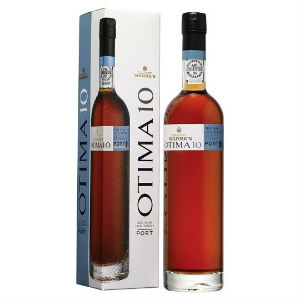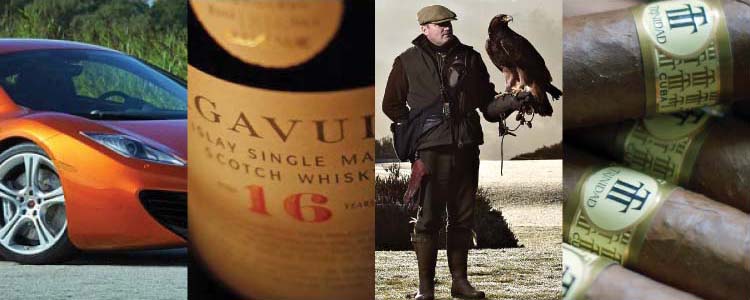Wine expert Peter Lunzer takes a closer look at a popular seasonal tipple.

With Christmas almost upon us, some people’s thoughts might turn to the annual, festive glass or two, of ‘Port’. I can sense some readers reminiscing about the mother of all hangovers and being convinced that Port was the culprit. In most circumstances this is not an unfair assumption but in this article I feel that some mitigation should be given.
(Left: Highly recommended 'Warre's Otima' 10 year old')
Since the Methuen treaty of 1703 between England and Portugal, there has been an alliance between our countries, which began with things such as preferential taxes on imports to the UK of Portuguese wine. Couple to this the degree to which Port Houses were nurtured by British families and the result is that we see Port as a very British drink. Few people realise that France is the greatest Port consumer - Ruby Port is taken daily, as an aperitif, in countless Bars and Restaurants across their entire country.
Where there can be no doubt is that ‘Vintage Port’ is the traditional domain of the British.
Many see Port as a festive drink or Stirrup Cup, meaning that outside the Hunting season or Christmas, i.e. most of the rest of the year, imbibers get very little practice at tasting the nuances of Port, or assessing the impact on the cerebral hemispheres of over indulging. Port, after all, can be a dangerously drinkable drop.
Why is Port so drinkable? Cutting to the chase, it is the sweetness of flavour and silkiness of texture that glide effortlessly over the palate, which make having 'just one more sip' so unbelievably tempting.
There are the above mentioned, two drinkable elements of Port which conveniently mask the 19% alcohol. More importantly, they equally mask the corrosive elements of the chemical stew, captured by the Port makers, which is capable of keeping a great Vintage Port alive for 50 years plus, after it is bottled. We encompass in the single word ‘maturation’ what happens during the decades in a bottle, where sediment is formed. The sediment is mainly the coagulation of tannins but includes a lengthy list of chemical changes which take from the wine a vast proportion of its masked acidity and tannins. Lots of other molecules combine and form ever more complex items such as esters and aldehydes. Essentially, the Port is softened with time.
With the chemical stew tamed after a few decades, the Vintage Port is now tasting like the equivalent of a soft cuddly toy, since it has lost most of its brutal kick. My contention is that at this stage it will not give you a Hangover, and after years of experimentation the reliable solution I have found is as follows: If you would like to drink lots of Port and avoid the hangover, then make sure that you drink a very old one (at least 30 years). If you are lucky then perhaps a generous God Father will have tucked away a heap of the stuff for you. However, back on planet Earth, there is an inexpensive and rewarding alternative called Tawny Port. It is where the Port Houses mature their produce for 10 years plus, in Oak Barrels. They are referred to as Tawny Ports in recognition of their colour which has been altered from a deep Ruby to a browny, paler red as a result of the years in Barrel. As the colour has changed so too has the chemical stew and this Port is not only affordable and eminently drinkable but also, it will not give you a hangover.
My recommendations are Warre’s Otima - their 10 year old is sublime. Alternatively the Graham’s 20 year old Tawny is really quite a treat. (Many in the Port trade agree that Tawnys benefit from being served a bit below cellar temperature, say 9C)
One of the season’s finest recipes in my opinion is Venison and Port Casserole. I would suggest that this creation genuinely benefits from the natural vigour of a youthful Port. The only problem is what to do with the rest of the bottle. I advise caution.
Now if any reader chooses to experiment with Port during the festive season and after a Gin or two, white wine, red wine etc. etc. during Dinner, then complains that it was the thimble of Port which caused the hangover the following morning, I have very little sympathy. Cheers!
For more expert tips from Peter Lunzer follow this link: what-is-the-best-wine-for-venison
 Peter Lunzer has been in the wine trade for over 30 years and frequently hosts food and wine pairing and tasting events for the Corporate Entertaining market (most recently in London, Munich and Hong Kong)
Peter Lunzer has been in the wine trade for over 30 years and frequently hosts food and wine pairing and tasting events for the Corporate Entertaining market (most recently in London, Munich and Hong Kong)
For more details please contact Peter at: Lunzer Wine Investments Limited, 15 Golden Square, London W1



















